gerbisa BISACODYL
Introduction to Gerbisa
Gerbisa is a medication primarily used to treat constipation. It helps stimulate bowel movements, making it easier for individuals to pass stools. This medication is also used to prepare the bowels before certain medical procedures, ensuring a clear colon for better examination.
Composition of Gerbisa
Gerbisa contains the active ingredient Bisacodyl, which is a stimulant laxative. It works by increasing the movement of the intestines, helping the stool to come out more easily.
Uses of Gerbisa
- Treating occasional constipation
- Preparing the bowels before medical procedures like colonoscopies
- Helping with bowel movements in certain medical conditions
Side Effects of Gerbisa
Common Side Effects:
- Abdominal cramps
- Bloating
- Nausea
- Diarrhea
Serious Side Effects:
- Dehydration
- Electrolyte imbalances
- Chronic laxative dependence
Precautions of Gerbisa
Gerbisa should not be used by individuals with certain gastrointestinal issues such as bowel obstruction, acute abdominal pain, appendicitis, or inflammatory bowel disease. It should also be avoided in cases of severe dehydration or electrolyte imbalances. Prolonged use can lead to dependency, and it is not recommended for children under 6 years old without a doctor's guidance.
How to Take Gerbisa
- For adults, the usual dosage is 5-15 mg orally taken once a day, usually at bedtime.
- If using the suppository form, 10 mg is typically used once a day.
- Take with a full glass of water.
- Do not chew or crush the oral tablets.
- Suppositories should be inserted into the rectum for effective use.
Conclusion of Gerbisa
Gerbisa is an effective medication for treating constipation and preparing the bowels for medical procedures. While it is generally safe, it is important to use it as directed and be aware of potential side effects. Always consult with a healthcare provider if you have any concerns or questions about using Gerbisa.


Can Gerbisa be taken safely while breastfeeding?
Gerbisa is generally considered safe to use while breastfeeding. There is limited information on whether it passes into breast milk, but it is unlikely to harm a breastfed infant. If you notice any changes in your baby's behavior or health, consult your doctor. They can help determine if Gerbisa is the cause and provide guidance on safe and effective treatment options for managing constipation while breastfeeding. Always inform your healthcare provider about any medications you are taking while nursing.

Can Gerbisa be taken safely while pregnant?
The safety of Gerbisa during pregnancy is not well-established, as there is limited evidence on its absolute safety. However, it is generally considered safe for short-term use to relieve constipation, which is common during pregnancy. Always consult your doctor before using Gerbisa while pregnant. They can help determine if the benefits outweigh any potential risks and provide guidance on safe and effective treatment options for managing constipation during pregnancy.

Can I take Gerbisa with other prescription drugs?
There are no major drug interactions with Gerbisa, but some moderate interactions exist. Avoid taking Gerbisa with antacids or milk, as they can affect how the medicine works. These substances can cause the Gerbisa tablet to dissolve too quickly, leading to stomach irritation or cramps. Always inform your doctor about all medications you are taking to prevent potential interactions. If you have concerns about specific drug interactions, discuss them with your healthcare provider to get personalized advice.

Does Gerbisa affect appetite?
Gerbisa doesn't typically affect your appetite. Most people taking this medication don't notice changes in how hungry they feel or how much they want to eat. This medicine works by stimulating the muscles in your intestines to help move stool through your digestive system, but it doesn't directly impact your desire for food. If you notice any unexpected changes in your appetite after starting Gerbisa, talk with your doctor about these changes. For mild appetite changes, try maintaining regular meal times and eating a balanced diet while taking your medication.

Does Gerbisa affect mood?
Gerbisa doesn't typically cause mood changes. Most people take this medication without experiencing anxiety, agitation, or other mental health effects. If you notice changes in your mood or mental well-being after starting Gerbisa, talk with your doctor. These symptoms might be related to something else, like stress or another health condition, rather than the medication itself. Your doctor can help determine what's causing any mental health changes you experience and suggest appropriate support while continuing your treatment.

Does Gerbisa affect sleep?
Gerbisa doesn't typically cause sleep problems. Most people take this medication without experiencing any changes in their sleep patterns. Sleep disturbances aren't listed as a known side effect of Gerbisa in the medication information. If you notice changes in how well you sleep after starting this medication, talk with your doctor. Sleep problems might be related to something else, like another medication you're taking or a different health condition. Your doctor can help figure out what's causing your sleep issues and suggest ways to improve your rest while continuing your treatment.

Does Gerbisa cause headaches?
Headaches are not a common side effect of Gerbisa. Most people take this medication without experiencing any head pain. If you do get mild headaches while taking Gerbisa, staying well-hydrated and resting may help. You can also take over-the-counter pain relievers after checking with your doctor. For severe or persistent headaches that develop after starting this medication, talk with your healthcare provider. Your doctor can help determine if your headaches might be related to Gerbisa or if they have another cause that needs attention.

Does Gerbisa cause stomach upset?
Yes, Gerbisa can cause stomach upset, including abdominal cramps, nausea, and diarrhea. These gastrointestinal side effects are common and usually mild. If you experience mild stomach upset, try taking Gerbisa with a full glass of water and avoid taking it with milk or antacids. If you develop severe or persistent stomach issues, talk with your doctor. They can help determine if these symptoms are related to Gerbisa or if there might be another cause. Always inform your healthcare provider about any new or worsening symptoms.

Does Gerbisa cause weight gain?
Gerbisa doesn't typically affect your weight. It is used to relieve constipation, which is when you have difficulty passing stools, and may cause temporary weight loss due to increased bowel movements. This weight change is usually mild and not significant. If you notice unexpected or significant weight changes while taking Gerbisa, talk with your doctor. They can help determine if these changes are related to the medication or if there might be another cause. Always follow your doctor's advice regarding medication use.

Does Gerbisa have adverse effects?
Adverse effects are unwanted reactions to a medication. With Gerbisa, common adverse effects include abdominal cramps, diarrhea, and nausea. These effects are usually mild and temporary. Serious adverse effects are rare but can include severe abdominal pain, dehydration, and electrolyte imbalances, which are disturbances in the levels of minerals in your blood. If you experience severe or persistent symptoms, stop taking Gerbisa and contact your doctor. Always inform your healthcare provider about any new or worsening symptoms while using this medication.

Does Gerbisa have any safety warnings?
Yes, Gerbisa has safety warnings. It should not be used if you have a blockage in your intestines, severe dehydration, or an allergy to Gerbisa. Using it too often or for a long time can lead to dependence, where your bowels rely on the medicine to function. This can cause dehydration and electrolyte imbalances, which are disturbances in the levels of minerals in your blood. If you experience severe abdominal pain, nausea, or vomiting, stop using Gerbisa and seek medical advice. Always follow your doctor's instructions and use Gerbisa only as directed.

Does Gerbisa interfere with sexual function?
No, Gerbisa doesn't typically interfere with sexual function. Most people use this medication without experiencing changes in sexual health, such as erectile dysfunction or loss of libido. There are no established sexual health side effects associated with Gerbisa. If you notice any changes in your sexual function while taking Gerbisa, it's important to talk with your doctor. They can help determine if your symptoms are related to the medication or if there might be another cause. Your doctor can also recommend appropriate treatment to address any issues while continuing your care.

Does Gerbisa limit driving?
Yes, it is generally safe to drive while taking Gerbisa. However, be aware that this medication can cause abdominal cramps and diarrhea, which might be distracting or uncomfortable while driving. If you experience these symptoms, consider waiting until they subside before getting behind the wheel. Always pay attention to how your body responds to the medication and avoid driving if you feel unwell. Talk with your doctor if you have concerns about driving while taking Gerbisa.

Does Gerbisa make it hard to think or concentrate?
Gerbisa doesn't typically cause thinking problems or concentration difficulties. Most people take this medication without experiencing any changes in their mental focus or memory. Cognitive issues like confusion or trouble concentrating aren't listed as known side effects of Gerbisa. If you notice problems with your thinking after starting this medication, talk with your doctor. These symptoms might be related to something else, such as dehydration, which means your body doesn't have enough fluids, or another health condition. Your doctor can help determine what's causing these issues and suggest solutions while keeping your treatment plan on track.

Does Gerbisa make people tired or drowsy?
Gerbisa doesn't typically cause tiredness or drowsiness. Most people take this medication without feeling unusually fatigued. If you notice you're feeling very sleepy or fatigued while taking Gerbisa, talk with your doctor. Your tiredness might be caused by something else, like another medication you're taking, or an underlying health condition. Your doctor can help determine what's causing your symptoms and recommend appropriate adjustments to your treatment plan. Remember that proper rest, regular physical activity, and a balanced diet can help maintain your energy levels while taking any medication.

For how long do I take Gerbisa?
Gerbisa is typically used for short-term relief of constipation, which is when you have difficulty passing stools. It's not intended for long-term use. You should take it only as needed and as directed by your doctor. If you find yourself needing to use Gerbisa regularly, talk to your healthcare provider. They can help you find alternative treatments or lifestyle changes to manage your condition without relying on laxatives. Always follow your doctor's advice regarding medication use.

How does Gerbisa work?
Gerbisa works by stimulating the muscles in your intestines to help move stool through your digestive system. It belongs to a class of medications called stimulant laxatives, which increase the activity of the intestines to produce a bowel movement. Think of it like giving your intestines a gentle push to help them work more effectively. This action helps relieve constipation, which is when you have difficulty passing stools. Gerbisa is effective for short-term relief and is often used before medical procedures that require an empty bowel.

How do I dispose of Gerbisa?
To dispose of Gerbisa, take it to a drug take-back program or collection site at a pharmacy or hospital. They will dispose of it properly to prevent harm to people or the environment. If you can't find a take-back program, you can throw it in the trash at home. First, take it out of its original container, mix it with something undesirable like used coffee grounds, seal the mixture in a plastic bag, and throw it away. Always keep medications out of reach of children and pets.

How do I know if Gerbisa is working?
Gerbisa is used to treat constipation, which is when you have difficulty passing stools. You'll know it's working when you have a bowel movement, usually within 6 to 12 hours after taking it. If you don't have a bowel movement within this time frame, or if your symptoms persist, consult your doctor. They may need to adjust your treatment plan. Always follow your doctor's instructions and use Gerbisa only as directed for the best results.

How do I take Gerbisa?
Take Gerbisa as directed by your doctor, usually once daily. It's best to take it in the evening to produce a bowel movement the next morning. Swallow the tablet whole with water; do not crush or chew it. Gerbisa should be taken on an empty stomach, either one hour before or two hours after meals. Avoid taking it with milk or antacids, as they can affect how the medicine works. If you miss a dose, take it as soon as you remember, unless it's close to the next dose. Do not double up on doses.

How long does it take for Gerbisa to start working?
Gerbisa typically starts working within 6 to 12 hours after taking it. The time it takes to work can vary depending on individual factors like your metabolism and overall health. For some people, it may work faster, while for others, it might take a bit longer. If you don't have a bowel movement within 12 hours, or if your symptoms persist, consult your doctor. They may need to adjust your treatment plan. Always follow your doctor's instructions and use Gerbisa only as directed for the best results.

How should I store Gerbisa?
Store Gerbisa at room temperature, away from moisture and light. Keep it in its original packaging or a tightly closed container to protect it from damage. Avoid storing it in humid places like bathrooms, where moisture in the air could affect how well the medication works. Always keep Gerbisa out of reach of children and pets to prevent accidental ingestion. Check the expiration date regularly and properly dispose of any unused or expired medication according to local guidelines.

Is Gerbisa addictive?
Gerbisa is not considered addictive in the traditional sense, but using it too frequently can lead to dependence. Dependence means your bowels may rely on the medication to function properly. To prevent this, use Gerbisa only as directed by your doctor and avoid long-term use. If you find yourself needing to use it regularly, talk to your healthcare provider. They can help you find alternative treatments or lifestyle changes to manage your condition without relying on laxatives.

Is Gerbisa effective?
Yes, Gerbisa is effective for relieving constipation, which is when you have difficulty passing stools. It works by stimulating the muscles in your intestines to help move stool through your digestive system. Clinical studies and user experiences support its effectiveness in producing a bowel movement within 6 to 12 hours after taking it. Gerbisa is commonly used for short-term relief of constipation and is often recommended before medical procedures that require an empty bowel. Always use Gerbisa as directed by your doctor.

Is Gerbisa safe for the elderly?
Elderly individuals are more vulnerable to the safety risks of medications like Gerbisa. They may experience more pronounced side effects, such as dehydration and electrolyte imbalances, which are disturbances in the levels of minerals in the blood. Gerbisa is generally safe for the elderly when used as directed for short-term relief of constipation. However, it's important for elderly users to stay well-hydrated and monitor for any adverse effects. Always consult a doctor before using Gerbisa to ensure it's appropriate for your health condition.

Is it safe to drink alcohol while taking Gerbisa?
It's best to avoid alcohol while taking Gerbisa. Alcohol can increase the risk of dehydration, which means your body doesn't have enough fluids, and may worsen side effects like abdominal cramps and diarrhea. If you do choose to drink occasionally, limit how much alcohol you consume and watch for warning signs like dizziness or dehydration. Talk with your doctor about alcohol use while taking Gerbisa to get personalized advice based on your specific health situation.

Is it safe to drink coffee or tea while taking Gerbisa?
You can drink coffee and tea while taking Gerbisa, but be mindful of their effects. Both coffee and tea contain caffeine, which is a mild diuretic that can increase urination and potentially lead to dehydration, which means your body doesn't have enough fluids. Since Gerbisa can also cause diarrhea, it's important to stay well-hydrated. Enjoy caffeinated drinks in moderation and make sure you drink plenty of water throughout the day. If you feel dizzy or lightheaded, these could be signs of dehydration, so talk with your doctor.

Is it safe to exercise while taking Gerbisa?
You can exercise while taking Gerbisa, but be cautious. This medication can cause diarrhea and abdominal cramps, which might make physical activity uncomfortable. If you experience these symptoms, consider reducing the intensity of your exercise or taking a break. Stay well-hydrated, as Gerbisa can lead to dehydration, which means your body doesn't have enough fluids. If you feel dizzy or lightheaded during exercise, stop and rest. Consult your doctor if you have concerns about exercising while taking Gerbisa.

Is it safe to stop Gerbisa?
Yes, it is generally safe to stop taking Gerbisa. This medication is typically used for short-term relief of constipation, which is when you have difficulty passing stools. Once your symptoms improve, you can stop using it. However, if you have been using Gerbisa regularly, talk to your doctor before stopping. They can help you find alternative treatments or lifestyle changes to manage your condition without relying on laxatives. Always follow your doctor's advice regarding medication use.

What are Gerbisa possible harms and risks?
Common side effects of Gerbisa include abdominal cramps, bloating, nausea, and diarrhea. These are typically mild and temporary. Significant adverse effects, though rare, can include dehydration, electrolyte imbalances, and chronic laxative dependence if used for long periods. Severe abdominal pain or rectal bleeding should be reported to a doctor immediately.

What are the most common side effects of Gerbisa?
Side effects are unwanted reactions that can happen when taking a medication. Common side effects of Gerbisa include abdominal cramps, diarrhea, and nausea. These effects are usually mild and temporary. If you notice new symptoms after starting Gerbisa, they might be temporary or unrelated to the medication. If side effects persist or worsen, talk with your doctor. They can help determine if the symptoms are related to Gerbisa or if there might be another cause. Always follow your doctor's advice regarding medication use.

What disease or symptom is Gerbisa used for?
Gerbisa is primarily used to treat constipation, which is when you have difficulty passing stools. It helps stimulate the muscles in your intestines to move stool through your digestive system. Gerbisa is also used to prepare the bowel for medical procedures, such as colonoscopies, which require an empty bowel. It is effective for short-term relief of constipation and is often recommended when other methods, like dietary changes, are not sufficient. Always use Gerbisa as directed by your doctor.

What is Gerbisa?
Gerbisa is a laxative used to treat constipation, which is when you have difficulty passing stools. It belongs to a class of medications called stimulant laxatives, which work by stimulating the muscles in your intestines to help move stool through your digestive system. Gerbisa is commonly used for short-term relief of constipation and is often recommended before medical procedures that require an empty bowel. It is available in tablet and suppository forms. Always use Gerbisa as directed by your doctor.

What is the usual dose of Gerbisa?
The usual dose of Gerbisa for adults and children over 12 is 5 to 15 mg taken once daily. This dose is typically taken in the evening to produce a bowel movement the next morning. For children aged 6 to 12, the dose is usually 5 mg. Gerbisa should not be used in children under 6 years old without medical advice. Always follow your doctor's specific dosing instructions for your personal health needs. If you have any questions about your dose, consult your healthcare provider.

Who should avoid taking Gerbisa?
Do not use Gerbisa if you have a blockage in your intestines, severe dehydration, or an allergy to Gerbisa. These are absolute contraindications, meaning the drug must not be used due to severe risks. Use caution if you have abdominal pain, nausea, or vomiting, as these could be signs of a more serious condition. In such cases, consult your doctor before using Gerbisa. Always inform your healthcare provider about your medical history and any other medications you are taking.
Available in 3 variations

strip of 10 tablets

packet of 5 suppositories

packet of 5 suppositories



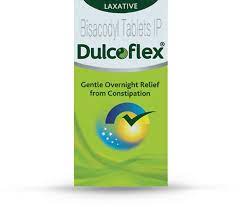
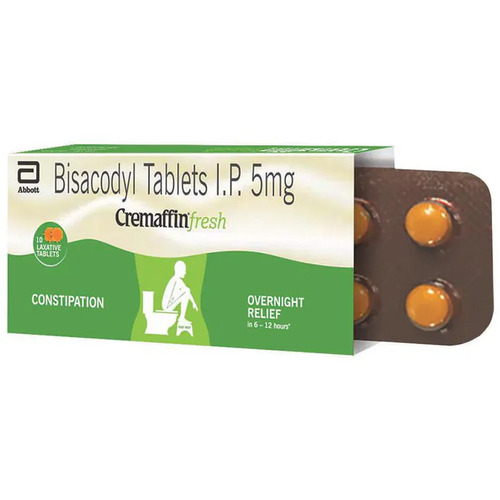

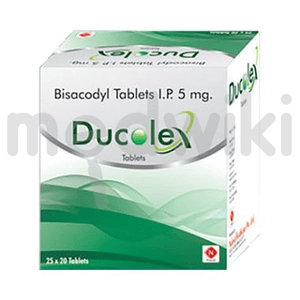
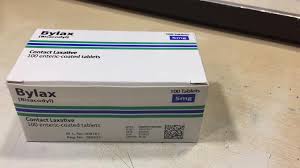

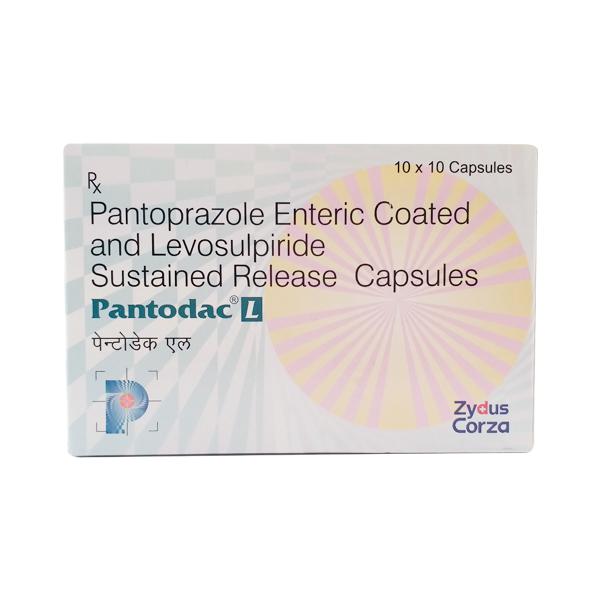
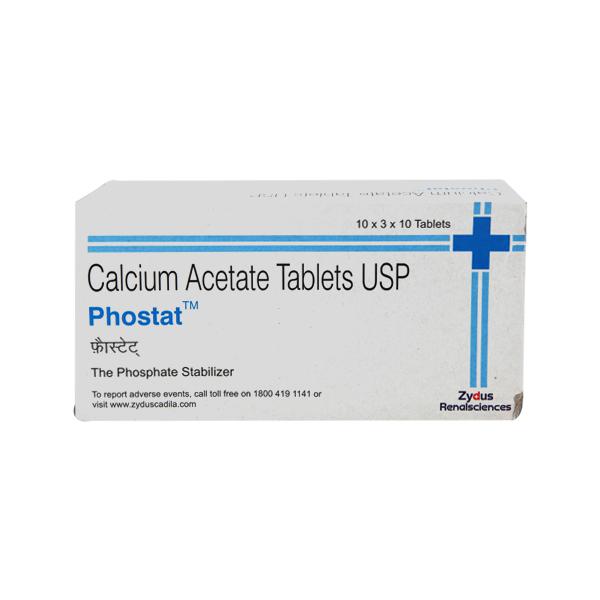





.svg)
